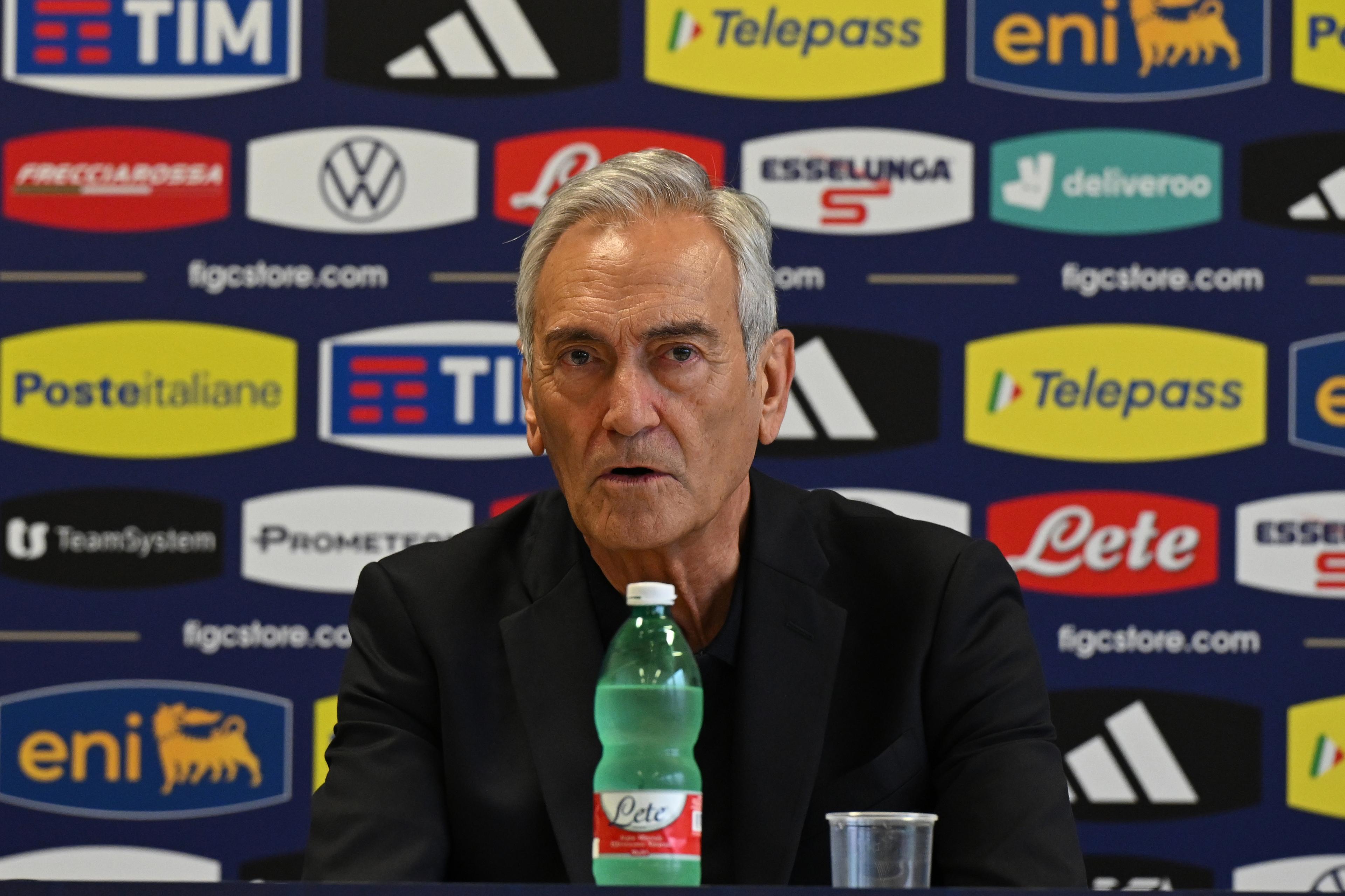PHOTO
ISERLOHN, GERMANY - JUNE 30: President FIGC Gabriele Gravina speaks with the media during a press conference at Casa Azzurri at Hemberg-Stadion on June 30, 2024 in Iserlohn, Germany. (Photo by Claudio Villa/Getty Images for FIGC)
In the press room of Casa Azzurri in Germany, the day after Italy's elimination from EURO 2024, the FIGC president, Gabriele Gravina, and the coach of the national team, Luciano Spalletti, met the media to discuss and analyse the team's problems that led to an early exit of the torunament.
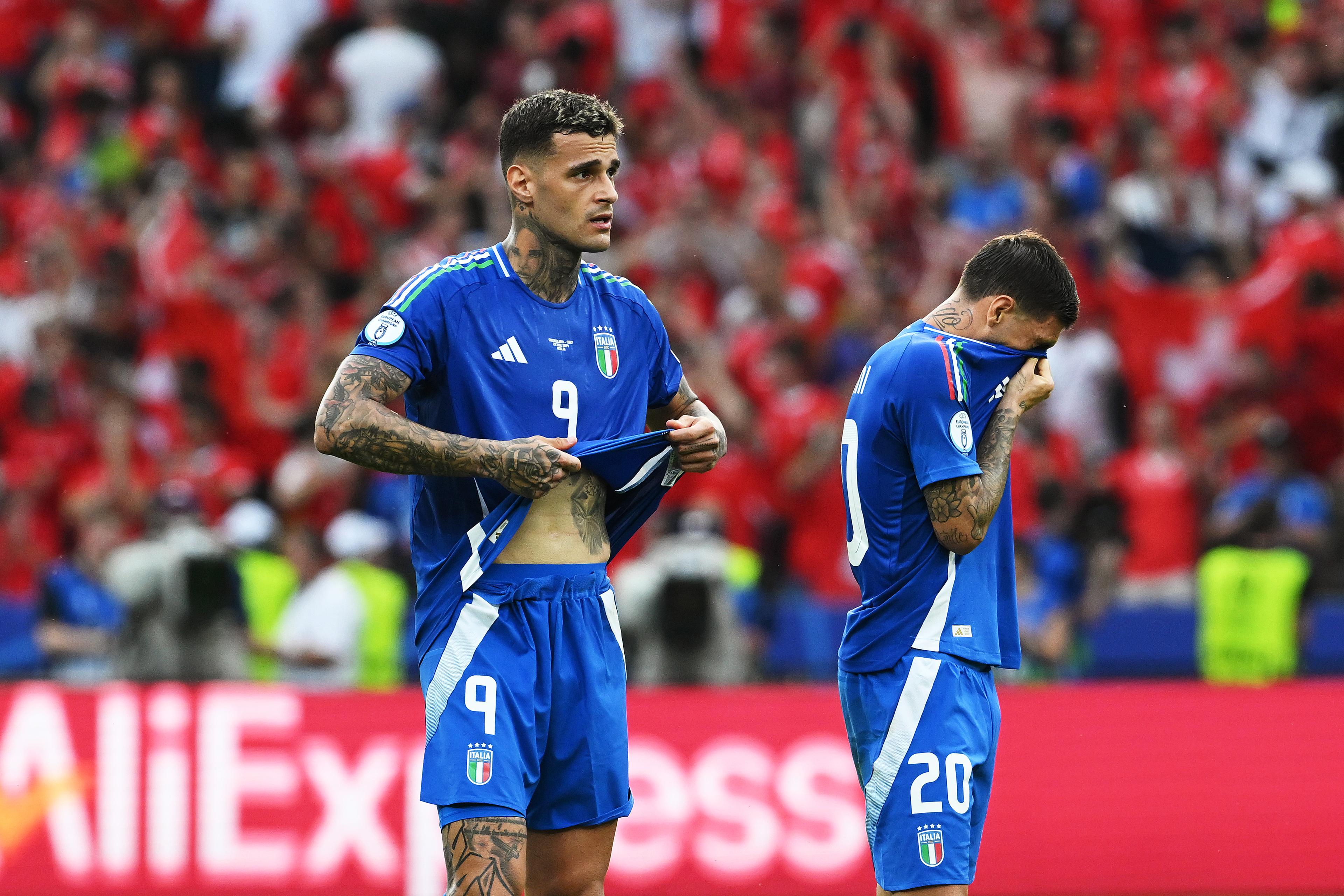

THANKS AND REFLECTIONS. "This opportunity, first of all, is to thank those who have given a significant contribution of work to this event: the collaborators of the Federation, and those of Casa Azzurri, an important project that brought over 40 thousand people to Iserlohn and Milan. It's a strange day, with many different feelings, many reflections that overlap, which fundamentally and personally we are sorry for not having been able to give back to all the Italian fans the joy that they deserved and deserve. We are sorry for the result, but the result in sport is subject to many variables, which also include the possibility of defeat. What remains is the disappointment of not having been able to demonstrate to those who followed us everything that was done in the preparation phase by these guys; an inability to express what we could have done and for not having been able to experience firsthand that typical Italy character, which leads to reacting to some limitations that we have always highlighted".
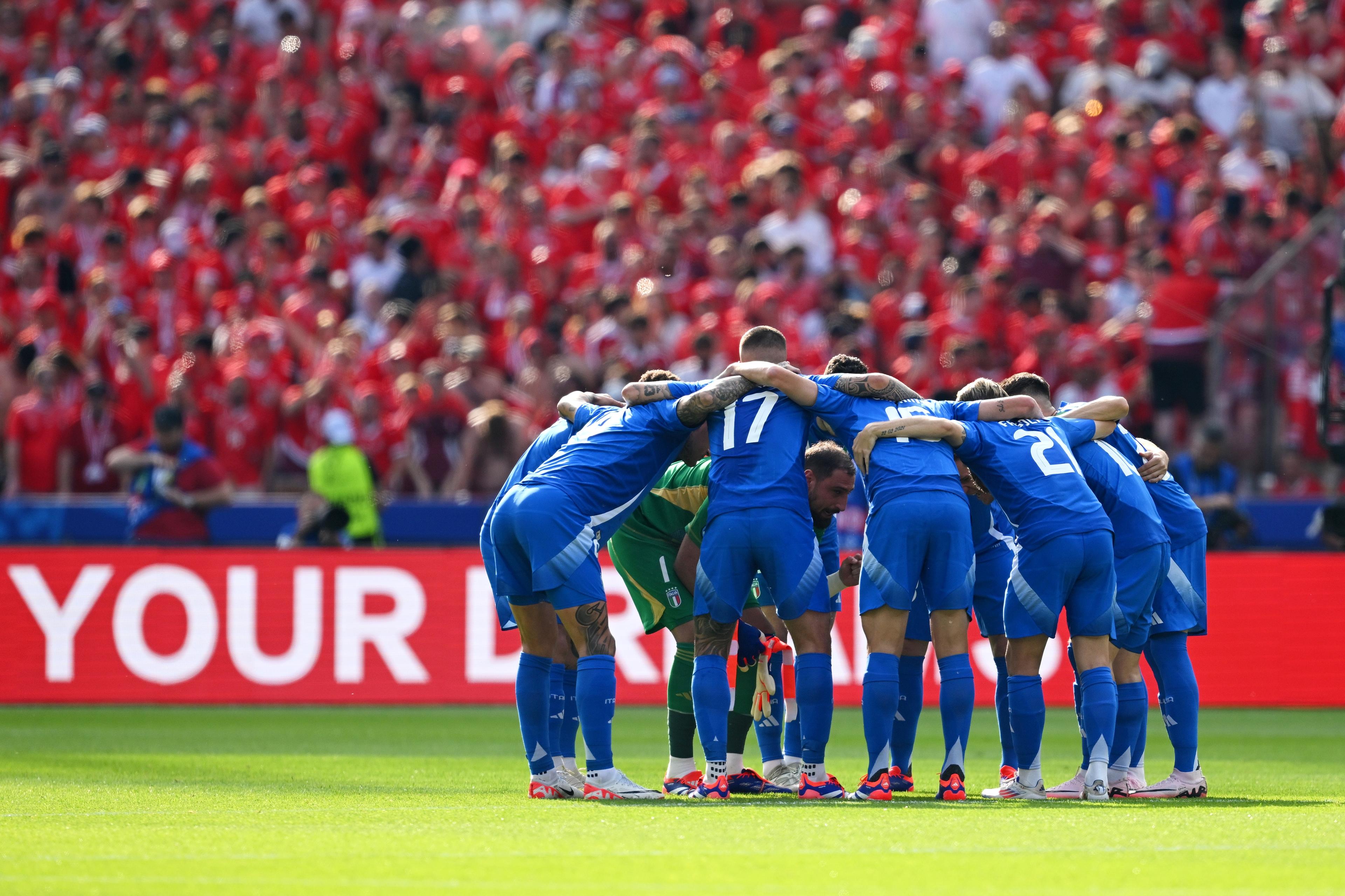

RESPONSABILITY. The group does not distance itself from taking responsibility. We are all responsible, and we must continue to be so, appealing precisely to the great sense of responsibility. There was a long chat with the coach: it is unthinkable to resolve the issues by abandoning a project that from the start we defined as multi-year. Something needs to change, something needs to be reviewed in terms of our approach: there will be some deep reflection, but we have started to analyse things together with Luciano Spalletti. We all have to develop and we only have one way to do it: when you fall, and it happens quite often, you have to get back up with the strength of the project, the strength of ideas and with work. I don't have the habit of running away from difficulties; this is the moment to distinguish political and sporting positions."
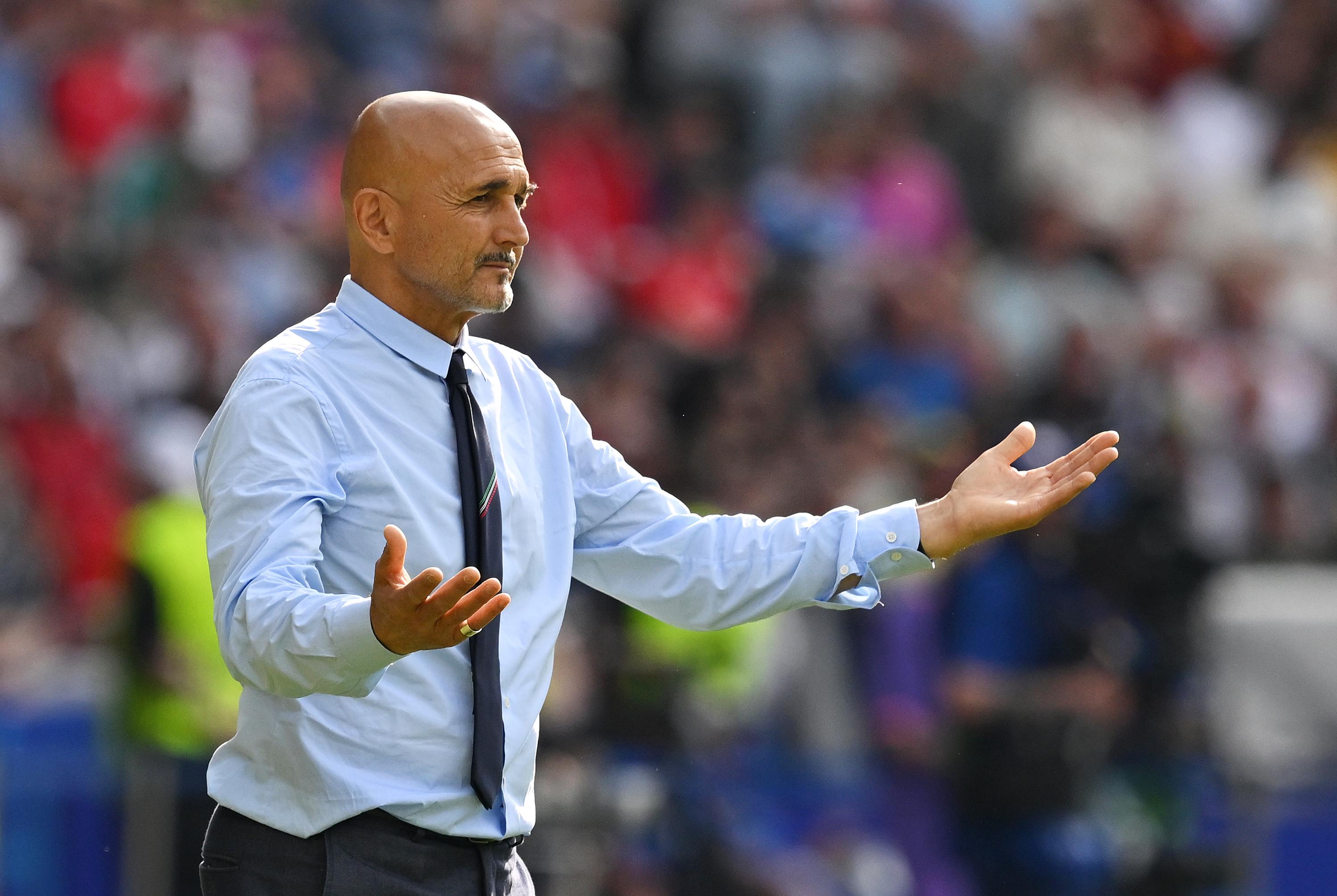

MULTI-YEAR PROJECT. "We are talking about a project where a new coach took over just a few months ago and who has only had a few matches available. Then, there are just over 100 selectable players and this must raise considerations that do not depend on the position of the federal president, but on the system. Spalletti must have our trust. The talent is there, and this has been seen by the results of our national youth teams, such as the Under 17s, who recently became European champions. We have never managed to activate a mechanism of valuing this talent".
CRITICISM. "We accept criticism, but those that we need to grow are legitimised by well-founded elements. Then, there are the instrumental ones, of a request for resignation at a moment of closure of one of my mandates. In the context of federal governance, the idea that someone could demand the resignation from outside doesn't exist. The term of office is scheduled to expire in March 2025, but the elections will take place earlier (by the end of 2024) compatibly with statutory obligations. We will go to a democratic vote: the only place responsible for choosing governance is by the election. And that governance will be led to make all the choices. Personally, I have not changed on my desire to be able to continue this path, which I consider challenging. I respond to the delegates, to the world of football; it is a service role. There are seven components in the world of football and it is right that there is an open discussion, with the possibility of verifying whether the path should be continued or interrupted. Reflections will be made after removing the rubbish that enter into my enthusiasm."
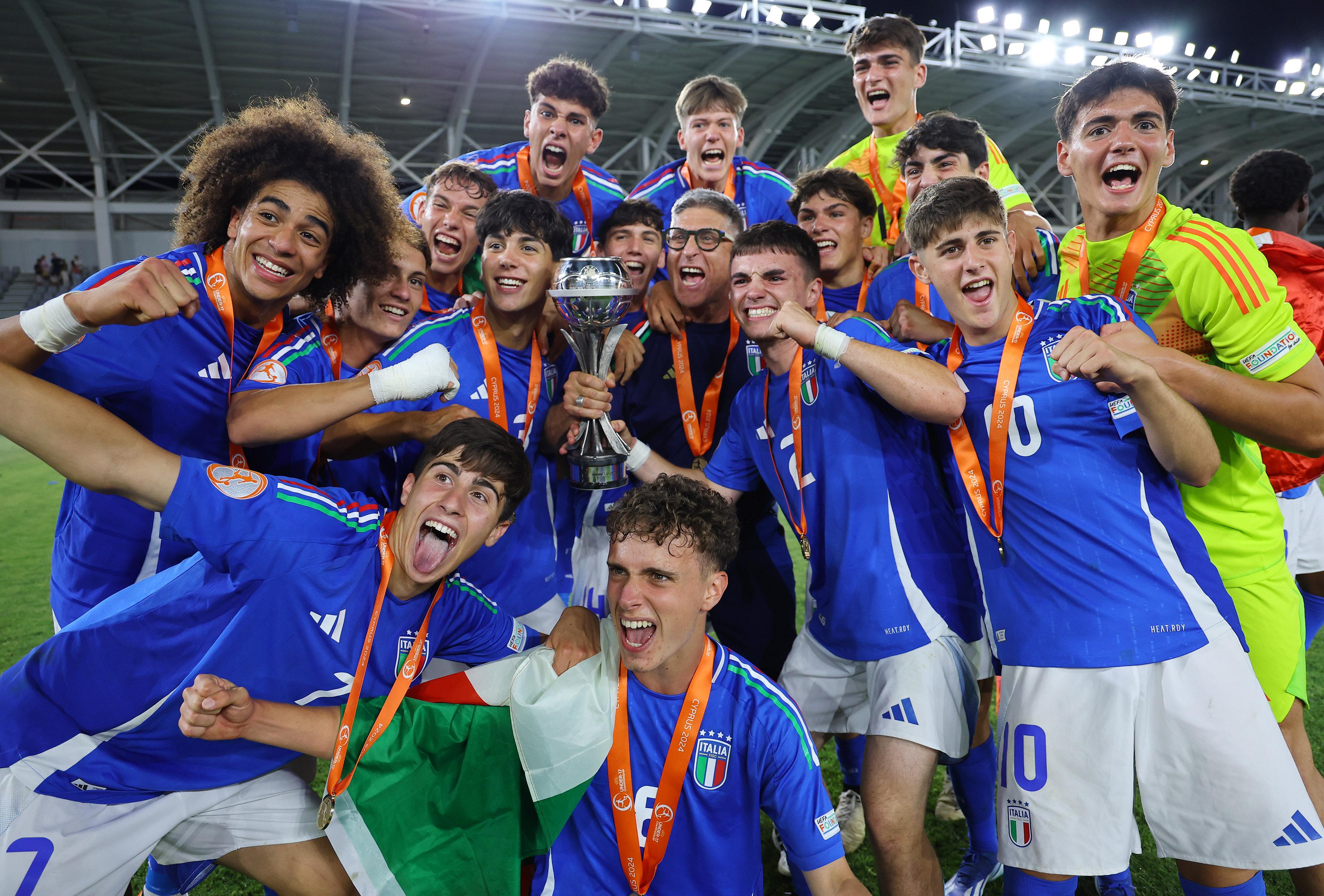

YOUTH SECTORS AND TEAMS. ""Common law prevents us from making choices linked to the use of young players. Also, we are faced with a cultural issue, which is seen through some numbers: 67% of our players are foreign, we only have 32-33% of selectable players, and we are also strongly resisting the possibility of freely registering non-EU citizens, a resistance that involves political attacks. There isn't the attitude to understand that the youth sectors and teams are a fundamental asset in resolving this problem. Working with young people is not a cost, but an investment: we can impose whatever you want, but we must all agree on it. Grappling between the Federation and politics? No, there is simply continuous discussion within a balance between the rules and the laws of the state; it also happens in other countries."
MISSION 2026. "There is awareness of the importance of qualifying for the 2026 World Cup. When we spoke with Luciano Spalletti, the planning was aimed at 2026: we can base all expectations, but we must always deal with reality. No one is able to guarantee a commitment without planning. In 2018, the year my mandate began, we chose to finance all basic activities. This project must lead to concentrating on our talent. In 60 days' time, we start the Nations League: we can make all the speeches you want, but we are far from our objectives. We have realised that we have gone backwards, and that we are a little further away, but we cannot give up and think of leaving aside some good performances. The 2026 objective exists and is real: it would be an unimaginable disaster not to be able to qualify for the third time. Not for the result, but for not being able to find the solution to a project."
SOLUTIONS. "We have already started an analysis by identifying some errors to be remedied. We have already started to set up a consultative body within Club Italia made up of five/six experts from Serie A clubs, to identify a strategy for promoting the youth. We cannot make the same mistakes we have made over this long period. Every time, we fall down and settle for a less harsh political analysis, but instead must be more harsh as to generate positive aspects. There is a problem in appreciating these guys who win the European Championship but then have zero appearances in their first teams. We have started a process of introducing the U23 teams, but which creates political tensions within the Federal Council. We talk about valuing young people, and then we need a Government provision on the topic of sporting constraints. We have Primavera teams consisting of 100% foreign players, our Primavera has increased the age limit by one year. The FIGC is asked to activate processes that enhance young people and then comes the amendment from a deputy that aims to give the Leagues full ownership, including the relevant youth ones. There is an unconvinced idea of having a wealth of talents of great value: the need for immediate sporting results does not allow for patience. You all saw how our Under 17 team won the European Championship, 3-0 against Portugal. A result that makes it clear that you have great players at your disposal. But these guys don't even play in the Primavera: why shouldn't the Federation have the chance to make an impact? The responsibilities are ours, I accept the criticisms, but we must find a way to include them in a process of responsibility for the system."
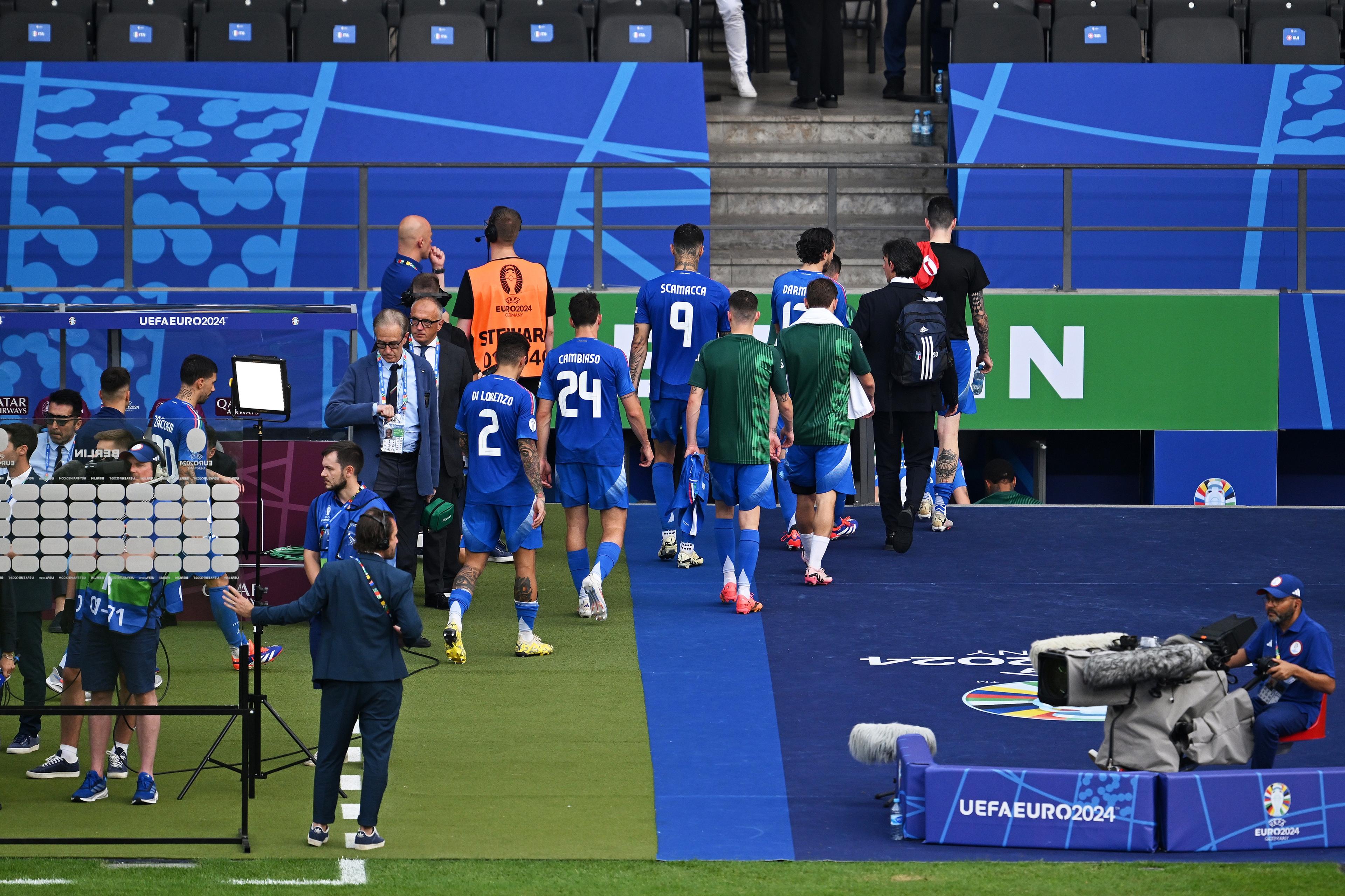

SPORTING PERFORMANCE. "Everyone is disappointed, including the boys for not being able to optimise the great sacrifices made in concrete terms. I'm not disappointed with them, but with the performance against Switzerland. Spalletti will work hard in these next 60 days, but I find it hard to think that in two months' time alternatives will emerge to make that jump in quality. The failure was to make up for some objective deficiencies with character, but I don't want to throw away everything that has been done. The boys must be held accountable for everything they have done."
